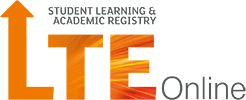The Principles of Course Design for Hybrid Learning toolkit was launched with the aim to contextualise the Hybrid Learning model to the nature of your subject discipline. Further information about the toolkit as a whole, as well as a link to download the resource can be found here: https://blogs.tees.ac.uk/lteonline/learning-and-teaching/principles-of-course-design-for-hybrid-learning/
Formative assessment is a pedagogical approach that refers to a wide variety of methods that are used to conduct in-process evaluations of student comprehension, learning needs, and academic progress during a lesson, module, or course. Formative assessments are for learning, while summative assessments are of learning and do not contribute to credit points. It doesn’t matter which technique is used to evaluate or assess learners; the driving force should be that these assessments are used to enhance the evolution of the learners on their path to mastering a learning concept.
You can read more about formative assessment here which offers key guidance: https://blogs.tees.ac.uk/lteonline/files/2019/11/LTE-Bites-05-Designing-Formative-Assessment.pdf
The digital solutions to afford flexible assessment in a hybrid model can be found here https://blogs.tees.ac.uk/lteonline/learning-and-teaching/flexible-hybrid-assessment/
Throughout stage 5, there are a range of questions for you to consider, which help to balance the needs of students and their expectations and the opportunities to build in meaningful formative assessment strategies for the students to succeed.
Examples of key considerations include:
- How will you build learning through learning activities and formative assessments?
Authentic assessment strategies should be used that are meaningful to both the learner and real-life situations. Also, try to develop tasks which are appropriate to the level of the students that have real-world relevance, which actively engage the learner in ongoing inquiry.
Engaging and supportive activities that take advantage of and recognise existing prior knowledge to build new knowledge. Activities should illuminate learner perceptions, prior knowledge and experience.
Construct knowledge collaboratively with activities that require and encourage learners to interact with other online participants, particularly tutors and peers. Furthermore, by building a learning community, students will be able to engage with others to socially negotiate and construct meaning from multiple perspectives.
Ongoing timely feedback that enables scaffolding learning and mentoring the learner in response to student questions and queries. Importantly, responsibility must be shared by both the tutor and the student to be effective. Associated with this is the need to model and encourage collaboration and peer feedback among students.
Opportunities for meaningful reflection should be created that enables self-assessment and encourages students to take responsibility for their learning. This aspect is promoted by the provision of authentic activities that are meaningful and relevant to the learner.
Ongoing documentation and monitoring of learner achievements and progress, associated with reflective practice supports learners to transition and mature towards self-regulated learning.
Being explicit with assessment activities and learning goals allows students to understand expected standards to enable them to perceive them as something real that will lead to a whole, genuine and meaningful outcome. In fact, promoting a shared understanding of learning goals and assessment requirements promote a strong online learning community and give clarity.
Flexible assessment activities provide learners with diverse opportunities to demonstrate their understanding and competencies. Additionally, flexible learning also drives learners to become more independent and self-regulating.
- How will you use feedback on achievement and areas for development?
You can use video or audio feedback on formative assessments that are individual or cohort feedback either posting up summaries of common issues experienced, common mistakes, general areas of success are ways of engaging with students.
You can read more about delivering effective feedback here:
https://blogs.tees.ac.uk/lteonline/lte-bites/lte-bites-02/. Some examples include:
-
- Forum for discussion with fellow students and tutors. This is where usually the facilitated active learning takes place.
- Surgery-type area so for example, assessment help and support.
- Quiz – should be fun, interactive and challenging and based generally around the subject matter of the course to test knowledge through objective testing methodologies.
- Block quizzes – Quizzes can be used to test student understanding of the module materials at the end of each section or block without being formally assessed. These should be engaging, interactive and provide students with useful feedback.
- Case Studies – Online case studies provide students with the opportunity to provide solutions based on a real-life problem.
- Scenario-based Questions – These types of exercises allow students to apply the knowledge and skills they have learnt.
- Problem-based Scenario – Learners have to rely on their theoretical and practical knowledge to investigate a problem. Skills-based Scenario – Learners demonstrate skills and knowledge already acquired.
- Issue-based Scenario – Learners take a stand on an issue and try and justify their reasoning.
- Game-based Scenario – Use games around a topic for assessment. Games can be used as learning tools and provide an alternative and often unexpected mode of assessment to what is expected by the learner.
- Speculative Scenario – Learners are given a scenario and have to predict the outcome based on their current knowledge.
LTE offers a variety of support for schools. Please contact us via eLearning@tees.ac.uk.
